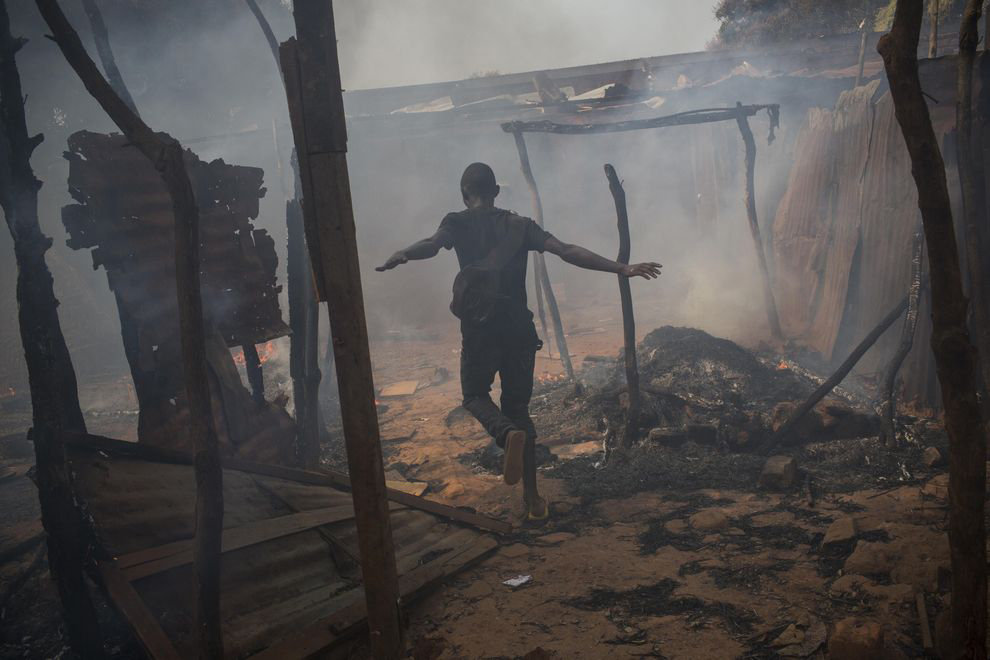
Features and Essays
Marcus Bleasdale: Bangui’s Inferno (Foreign Policy) Revenge and bloodletting in the Central African Republic
Jerome Delay: Central African Republic Soldiers Join Chaotic Violence (AP Big Story) Soldiers lynch suspected Seleka rebel fighter | Muslims flee Central African Republic’s Capital (AP Big Story)
Michael Zumstein: A Country Spiraling Out of Control (CNN Photos) Central African Republic
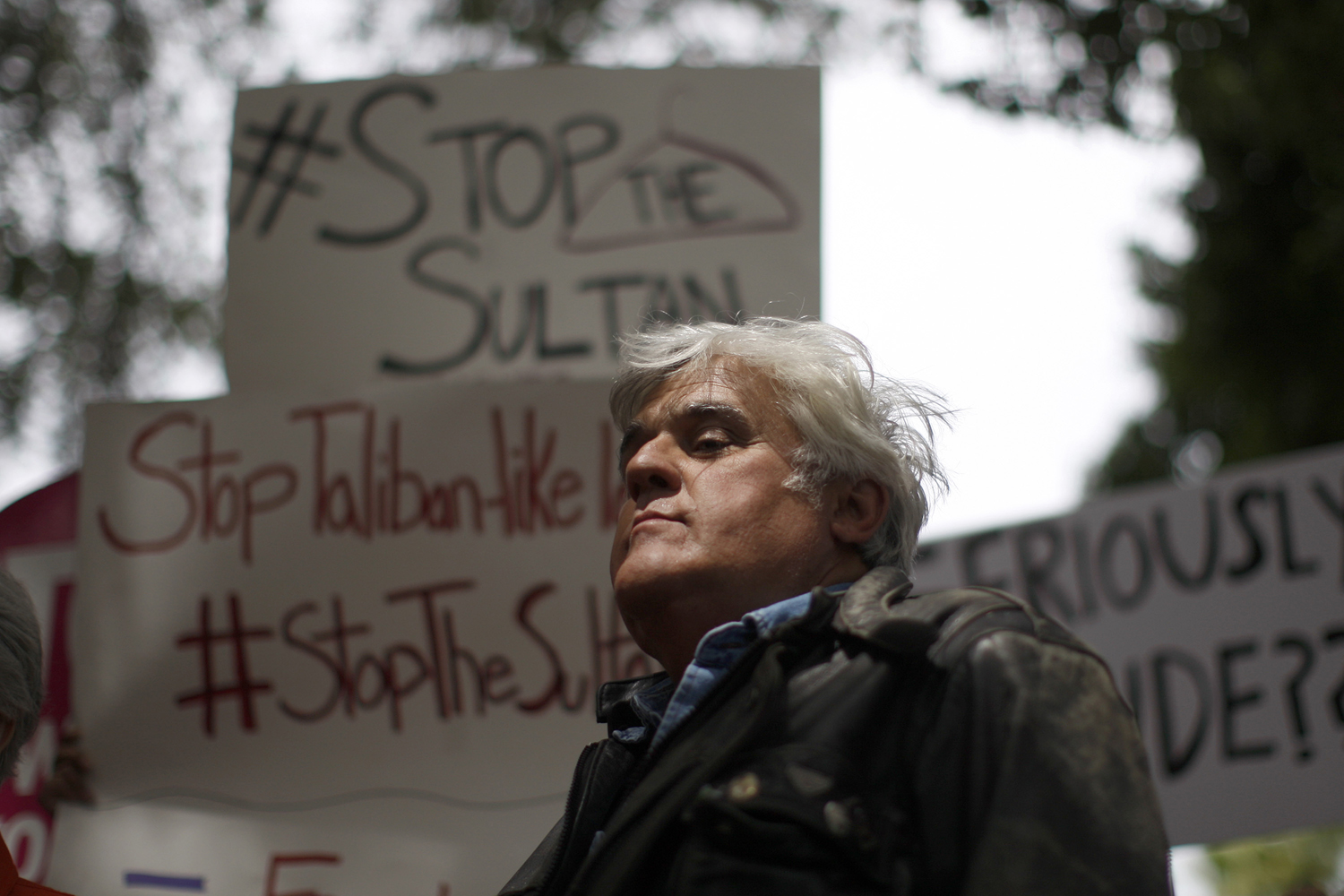
Jerome Delay: Looted Muslim Shops in Bangui (Guardian) All Muslim shops on the avenue leading to PK5 in Bangui, the capital of the Central African Republic, were looted as anti-Balaka militiamen pushed back Muslim factions, opening the gates for mass looting by Christian residents.
Ami Vitale: It Takes a Village to Protect a Rhino (NYT Lens) As Kenya makes efforts to save its critically endangered wildlife, like the white rhino, of which only eight remain, communities are learning the benefits of fighting poaching.
Meeri Koutaniemi: Blood, Fear and Ritual: Witness to Female Circumcision in Kenya (LightBox) The ritual of female circumcision is still valued in some 30 countries, mainly in Africa and the Middle East, under the belief that girls must be “cut” in order to prepare them for marriage.
Marcus Bleasdale: North Kivu: The Minerals of Blood (Paris Match L’Instant) Conflict minerals in Congo
Jason Florio: Source to Sea (The New Yorker’s Photo Booth) Photos from a trip along the Gambia River, one of Africa’s last major free-flowing rivers, from its source, in the highlands of Guinea, through Senegal and the Gambia, to its outlet, at the Atlantic Ocean.
Carolyn Drake: A Waldorf School in China (The New Yorker’s Photo Booth) The Chengdu Waldorf School
Massimo Vitali: The Empire State Building in Ice (New York Times Magazine) Ice and Snow World in Harbin, China
Mohammed Muheisen: Afghan Refugee Children in Pakistan (AP Big Story) For more than three decades, Pakistan has been home to one of the world’s largest refugee communities: hundreds of thousands of Afghans who have fled the repeated wars and fighting in their country.
Abbas Hajimohammadi Saniabadi: Fragile Minds: Inside an Iranian Mental Hospital (LightBox) A poignant look at a Tehran mental hospital
Joachim Ladefoged: Turkey (New York Times Magazine) Ladefoged’s images from last summer’s protests in Istanbul accompany a magazine piece about the current state of the country
Guy Martin: City of Dreams (Panos Pictures) On the sets of Turkish soap operas, widely popular across the Arab world and Balkan countries
Yuri Kozyrev: Weird, Wonderful Sochi: Inside Russia’s Own Palm Beach (LightBox) In Soviet times Sochi was known as Russia’s version of Palm Beach
Davide Monteleone: Faces of Russia’s LGBT community (MSNBC) In a series of portraits, Rome-based photographer Davide Monteleone sought to convey a simple message about gay couples living in Russia.
Stanley Greene: Chechen Island (NOOR) Chechen Island is the first chapter of Stanley Greene’s long term project Hidden Scars – a photographic investigation into post-war Chechnya

Elena Chernyshova: Russian Winter in Norilsk (NBC News) Chernyshova spent a year documenting the Russian arctic city of Norilsk. Polar nights leave the city in darkness 45 days a year.
Ross McDonnell: Fire and Ice in Kiev (LightBox) Photographs from the front line of Ukraine’s ongoing civil unrest
Maxim Dondyuk: Uprising in Ukraine (BusinessWeek)
Espen Rasmussen: Into the Wild (Foreign Policy) Greenland, on the cusp of momentous, perhaps irrevocable, change
Matteo Bastianelli: The Bosnian Identity (NYT Lens) A project that explores the hidden emotional wounds left by the 1992-95 war that changed the country.
Kenneth O Halloran: Pilgrims’ Progress (NYT Magazine) In A.D. 441, St. Patrick, Ireland’s patron saint, climbed the third-highest mountain in County Mayo and, according to legend, spent 40 days and nights fasting and praying at its summit. Modern pilgrims inspired by his example still flock to what is now known as Croagh Patrick.
Edgar Martins: Inside the European Space Agency (Slate)
Jon Tonks: Empire (Guardian) Tristan da Cunha and St Helena are two of the world’s most remote islands, and the once-formidable British Empire’s most far-flung outposts.
Lucas Foglia: Frontcountry (The New Yorker’s Photo Booth) Foglia travelled across the American West, where he photographed the effects of a mining boom in the backcountry of Idaho, Montana, Nevada, New Mexico, Texas, and Wyoming.
Joana Toro: I Am Hello Kitty (NYT Lens) The photographer Joana Toro, who worked as Hello Kitty in Times Square, reveals her fellow Elmos and Mickeys to be immigrants like her, looking to make an extra dollar
Daniel Cronin: Jerusalem, Florida: The Holy Land Experience (CNN Photos) Every week, crowds bypass Orlando’s enticing theme parks and megamalls, opting instead to follow a blood-soaked Jesus impersonator as he heads for crucifixion on an immaculate Florida lawn.
Alex MacLean: Aerial Perspectives (Telegraph) MacLean’s images reveal the complexities and absurdities of contemporary life across America and Europe.
Emiliano Granado: Toughmudder (The New Yorker’s Photo Booth) Popular obstacle racing
Stephen Reiss: In the Bronx, 20 Kids and Counting (NYT Lens) In one busy home in the Bronx, a lesbian couple have raised 20 foster children in 10 years.
Ed Kashi: Health Crisis Among Sugar Cane Workers in Nicaragua (NYT Lens) Dismayed by the prevalence of kidney disease among Nicaraguan sugar cane workers, Ed Kashi is raising money to document the crisis and to spur dialogue. This slideshow includes his work so far.
Articles
Horrific but necessary photographs (AFP Correspondent) Sylvain Estibal, AFP’s photo chief for Europe and Africa, explains the thinking that went on before Issouf Sanogo’s photos of last week’s lynching in Central African Republic were shared on the wire.
Photographer: Central African Republic “Falling Apart” in “Horrific Violence” (National Geographic News) Marcus Bleasdale reports from the front lines of chaos
Fred Ritchin on Syrian Torture Archive: When Photographs of Atrocities Don’t Shock (LightBox) Ritchin writes on the power of photographs, or lack thereof, following the leak of a 55,000 photograph archive by a Syrian military police photographer documenting the deaths of some 11,000 detainees who had been executed, and in many cases tortured.
Susie Linfield: Advertisements for Death (NYT) On the recent cache of photos from Syrian jails and perpetrator images throughout history
James Traub: The Disappeared (Foreign Policy) Traub on the dangers facing journalists covering Syria
How To Get Arrested In Egypt: Work As A Journalist (BuzzFeed) The third deadliest country for reporters in 2013. “It’s never been as bad as it is nowadays,” Mosa’ab Elshamy says.
Photojournalist James Nachtwey Injured in Pre-Election Clashes in Bangkok (WSJ) More on Time here
Behind Kiev’s barricades, against the odds (BJP) Beyond the attractive aesthetics of the fire and ice images that have come out of Ukraine, the current anti-government protests in the Eastern European country are an opportunity for freelance photographers to make their mark in a competitive media landscape dominated by the cult of the breaking news. Yet, as with other clashes, challenges exist
Photographer Fired by AP Says Decision Was Fair, But Process Wasn’t (PDN Pulse) Narciso Contreras comments on the saga surrounding his dismissal from AP
Confluence of ethics matters (NPPA) Thoughts on photojournalism ethics today by NPPA’s ethics committee members
The Guardian’s head of photography on a striking image from Pakistan (Guardian) The Guardian and the Times both chose the same image of a young Afghan girl from a choice of over 20,000
Visual Poetry: Erika Larsen Explores the World of Garrison Keillor (PROOF) Erika Larsen photographed Garrison Keillor’s hometown for “There’s No Place Like Home,” a personal narrative written by Keillor for the February issue of National Geographic magazine.
Alex Webb Reflects on the Kumbh Mela (PROOF) Webb spent a month experiencing this epic spiritual gathering in early 2013. His photographs appear in “Karma of the Crowd,” published in the February 2014 issue of National Geographic.
Alex Webb Looks Back in Black-and-White (NYT Lens) The photographer Alex Webb is known for his color work, but his black-and-white 1976 project documenting Mound Bayou, Miss., is the one he regrets not completing
Ed Kashi on documenting young Syrian refugees living in limbo (PROOF)
Ivan Kashinsky: Love Bloomed from the Darkroom to the Barrio (PROOF) Kashinsky is working on “Project Mi Barrio,” an ongoing essay in which he documents his rapidly changing neighborhood in Ecuador with his iPhone.
The Month in Photography (Guardian) Capa in Colour, David Lynch, Philip-Lorca diCorcia and Jessica Eaton feature in February’s guide to the best photography shows and books.
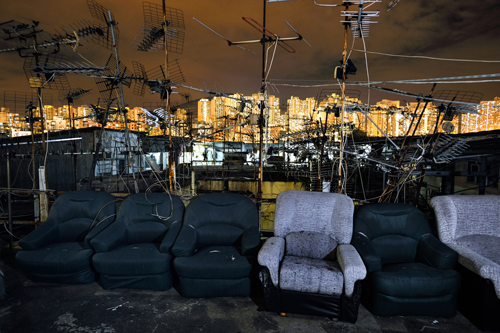
Moving Walls 21 (Open Society Foundations) Moving Walls 21 features work by Shannon Jensen, Mark Leong, Diana Markosian, Nikos Pilos, and João Pina. The exhibit examines the refugee crisis in South Sudan resulting from conflict in Sudan’s Blue Nile state in 2012, Hong Kong’s evolving identity under China, the rise of Islamic fundamentalist values—and its impact on young women—in Chechnya, the financial collapse of Greece, and the legacy of South America’s “dirty wars.” | More on LightBox here
Judging the Photography Awards: How Much Art Is Too Much? (No Caption Needed)
Classic Lensman, Using Full Palette (NYT) Review of International Center of Photography’s ‘Capa in Color’ exhibit
Saul Leiter: The anti-celebrity photographer (Telegraph) Saul Leiter was immensely talented, revered, and spent much of his life successfully avoiding the limelight. A year after his death, is that about to change?
Rescued from war-torn Bangui: photographer Samuel Fosso’s life work (Guardian) Photographers chronicling violence in Central African Republic recount their extraordinary discovery and rescue of prints and negatives after Fosso’s studio was attacked by looters | More on the Lens blog here
Instagram Envy Chain: Sochi Edition (NYT Magazine 6th Floor blog) How Russian photojournalists were covering Sochi on their Instagram accounts
Happy 100th birthday, Leica! (Guardian) As the world’s original mobile camera celebrates its centenary, Guardian photographers send their birthday messages to the little black box that changed their world
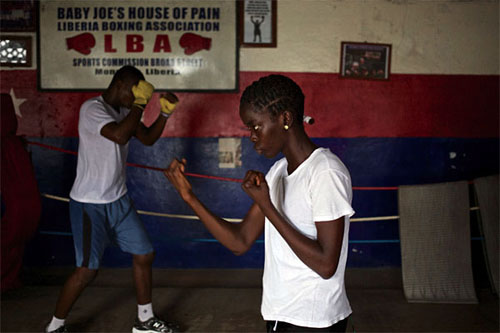
Featured photographer: Magda Rakita (Verve Photo) Polish photographer based in London
Featured photographer: Marion Gambin (Verve Photo) French photographer based in Paris
Featured photographer: Javad Parsa (Verve Photo) Iranian photographer based in Oslo
Interviews and Talks
David Guttenfelder (FLTR) Shift in power: Guttenfelder on the impact and importance of smartphone photography | “There’s a whole language being developed – the power structure is being turned on its head,” says David Guttenfelder, who speaks to FLTR about what attracted him to the smartphone
Kathy Ryan (FLTR) Before Instagram, Kathy Ryan, director of photography at The New York Times Magazine, rarely took any pictures. But the discovery of social platform changed that – so much so, that she even curated Aperture’s first Instagram Silent Auction last year. She tells FLTR about the impact smartphone photography has had on contemporary photographic culture
Moises Saman (Vice) Saman on his work and the upcoming book on revolution in Egypt and the wider Arab world
Olivia Arthur (Vice) Arthur photographs a side of women the West rarely sees
Ron Haviv (NBC News) Haviv spoke to NBC’s Ann Curry in an interview for Depth of Field, a series of intimate conversations with the world’s leading photojournalists who reveal the stories behind their most provocative and acclaimed images
Harry Benson (Mr Porter) How one Glaswegian photographer has captured half a century of history
Martin Schoeller (WSJ) On creating perfect portraits
Katie Orlinsky (Photo Whoa) On working in Juárez, Mexico
Shannon Jensen (Public Radio International) How shoes can tell the plight of refugees in South Sudan | Photos from Jensen’s series ‘A Long Walk’ on the Lens blog here
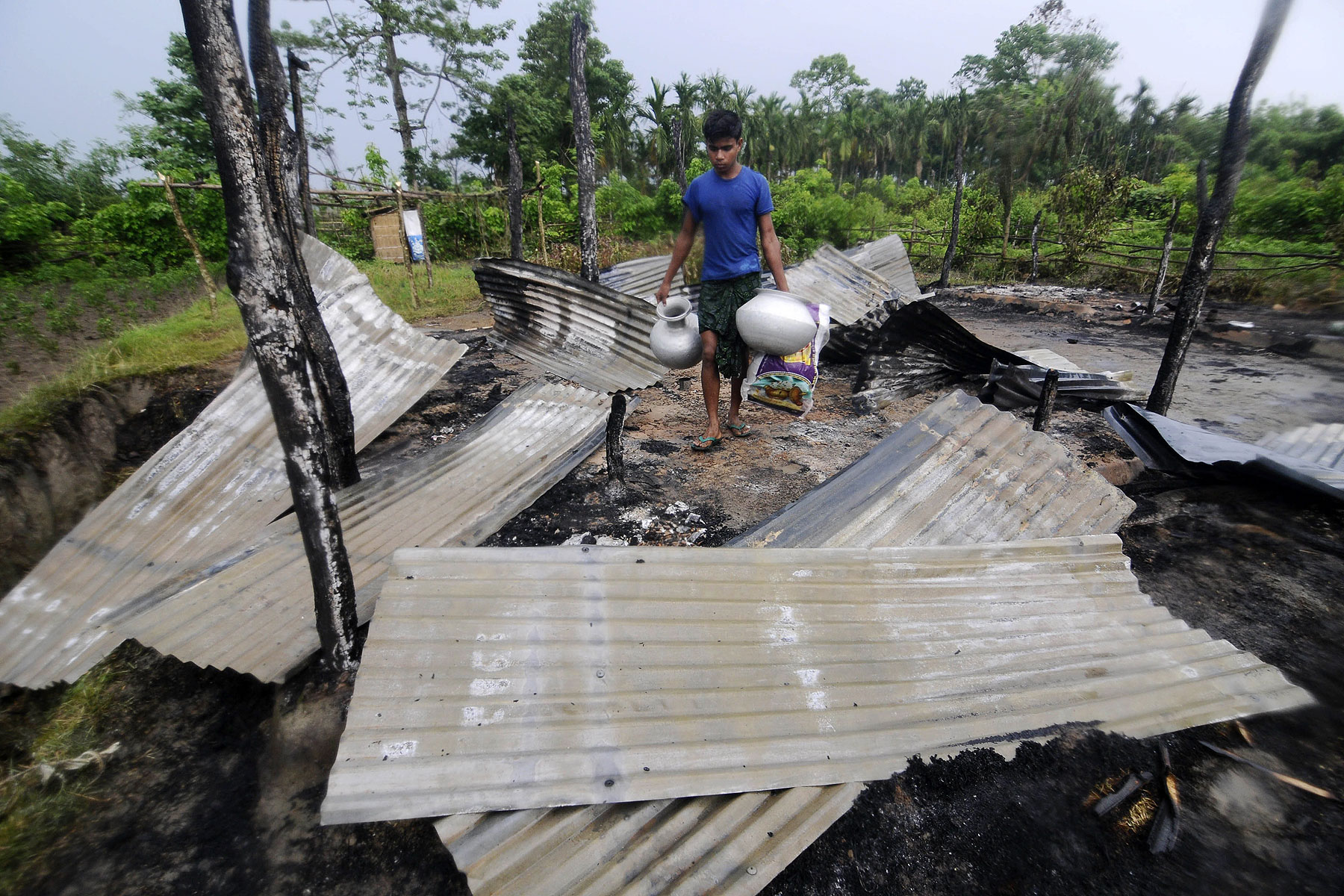
Matt Black (Columbia Visuals) “I felt like the last thing the world needed was another photographer chasing headlines”
Matt Eich (InFocus by Getty Images) Eich on his project in Baptist Town, one of Greenwood, Mississippi’s oldest African American neighborhoods, where the legacies of racism continue to impact people economically and culturally.
Lottie Hedley (Roads and Kingdoms) Hedley interviewed about her work documenting an Amish family in Maine
Mikko Takkunen is an associate photo editor at TIME.com. Follow him on Twitter @photojournalism.
More Must-Reads From TIME
- The 100 Most Influential People of 2024
- How Far Trump Would Go
- Scenes From Pro-Palestinian Encampments Across U.S. Universities
- Saving Seconds Is Better Than Hours
- Why Your Breakfast Should Start with a Vegetable
- 6 Compliments That Land Every Time
- Welcome to the Golden Age of Ryan Gosling
- Want Weekly Recs on What to Watch, Read, and More? Sign Up for Worth Your Time
Contact us at letters@time.com